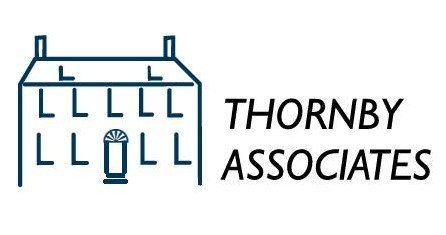SLC Annual Conference 2022
A great turnout as always at the SLC Annual Conference in Derby on 2nd November!
The morning started with a number of updates from regulators and after our host, Kate Faulkner and SLC Chair, Simon Law welcomed everyone to the event, Dame Janet Paraskeva was first up with an update from the Council for Licensed Conveyancers (CLC). CLC regulated firm revenues rose from £277m in 2020 to £349m in 2021, driven by property market activity and the update included; details of cost cutting which has enabled a 50% reduction in practice and compensation fees over the last 7 years; the current negotiations with the Legal Ombudsman around reducing the overall contribution the CLC makes, and implementing proportionate fines for the worst offenders; and creating greater transparency around compliance and the way in which the regulator will deal with non-compliance.
Dame Janet also applauded the modernisation activity in the sector, notably the work being done by the Home Buying and Selling Group, and urged CLC regulated firms to engage with the work being done.
In a recurrent theme, The CLC are also due to launch a consultation on continuing professional development in 2023 following the Legal Service Board’s (LSB) intention to review ongoing competence. LSB Chief Executive, Matthew Hill, told the conference both the LSB and regulators has an obligation to “mitigate the erosion of individual competence over time,” suggesting that training could be incorporated into disciplinary proceedings in an effort to raise standards.
Asked to provide attendees with his thoughts on what is coming down the track for conveyancing practitioners, Hill suggested that the LSB would continue to place a greater focus compliance with the Money Laundering regulations; highlighted climate change and sustainability as a major concern for consumers and home movers in the coming years; and suggested the LSB and regulators had a responsibility to improve diversity and equality in legal services where there is significant work to be done. Echoing Matthew Hill, HM Land Registry Chief Executive, Simon Hayes, said that “minority groups have a poorer experience in using legal services.”
In an unusual step Simon Hayes took to the stage and issued an apology for the delays conveyancers are experiencing at Land Registry, saying “I am conscious we are not providing the service we want to provide.” Hayes suggested there was work being done to rectify the challenges facing HMLR with 1000 additional staff recruited and being trained up. He pointed the importance of accuracy from practitioners when it comes to dealing with HMLR as being critical to moving the dial on progress; 2/3rds of developer, non-developer and first registrations are returned with errors, with many unresolved at the second attempt.
As part of the work to improve accuracy, Hayes pointed to the digital applications service launched last year as a key tool, alongside the move to place a greater onus on conveyancers to “legally assure” the information provided to prevent the need for constant checking.
Change continued to be a theme throughout the day. Deputy Legal Ombudsman (LeO) Steve Pearson discussed changes to Scheme Rules which will see complaints review time reduced to 1 year, increased discretion to dismiss cases earlier, and a more defined timescale to detail a complaint to reduce “complaint-creep.”
A panel session then took place with questions from the floor.
Before the lunch break, it was time for a change of pace with Tash Tice, a life coach and hypnotherapist, who gave an interactive session with practical tips and breathing techniques to help reduce stress.
SLC Conference regular, Rob Hailstone, talked about the National Conveyancing Week planned for March 2023 and delegates were asked a series of questions to answer using Slido.
SDLT expert Hannah Mackinlay explained how proposed changes to SDLT will make MDR more difficult. Miles Shipside from Rightmove and Martyn Reed from the Property & Energy Professional Association (PEPA) finished the day with a useful reminder on the value of EPCs and EPC data, particularly in view of the upcoming changes to landlord energy performance requirements.
Kate and Simon closed the event with a summary of the day.
Thank you so much to everyone who attended!
From the Thornby Team



























